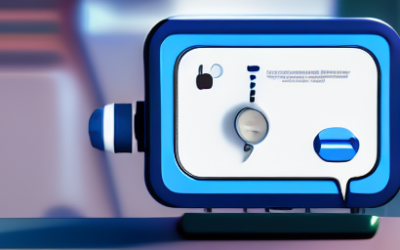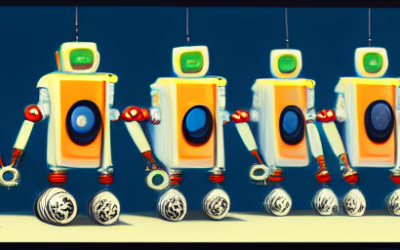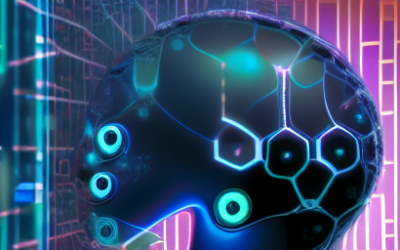While traditional support offers a human touch and emotional connection, AI agents provide scalability, efficiency, and 24/7 availability. Moving forward, businesses must carefully assess their unique needs and customer expectations to determine the optimal balance between AI-driven automation and human interaction.
Tech Blog
Tech Insights, Information, and InspirationStreamlining Efficiency: AI Agents in Workflow Automation
Artificial Intelligence (AI) agents have emerged as powerful tools for automating workflows, enabling businesses to streamline processes, reduce manual intervention, and enhance overall operational efficiency.
Trailblazing the Future: How Visionaries Utilize AI Technology in Business
In the rapidly evolving landscape of modern business, trailblazers are leveraging cutting-edge technologies to gain a competitive edge. Among these innovations, Artificial Intelligence (AI) stands out as a transformative force that is reshaping industries across the globe.
AI Model Agents and the Future of Work: Augmenting Human Capabilities and Redefining Job Roles
AI model agents have the potential to augment human capabilities in numerous ways, providing enhanced support and efficiency across various industries. By leveraging machine learning algorithms and deep neural networks, these agents can analyze complex data sets and extract valuable insights, allowing humans to make more informed decisions.
GPT-3.5: The Next Generation of Language Models
Developed by OpenAI, GPT-3.5 represents a significant leap forward in the capabilities of artificial intelligence, opening up new possibilities for communication, creativity, and problem-solving. In this blog post, we will delve into the features, improvements, and potential applications of GPT-3.5.
Integrating ChatGPT for More Human-Like Conversations with Chatbots
Integrating ChatGPT for more human-like conversations with chatbots involves leveraging OpenAI’s GPT technology to create more natural, engaging, and context-aware interactions with users.
How NLP is Revolutionizing the Chatbot Industry
NLP (Natural Language Processing) is a branch of artificial intelligence (AI) that deals with the interaction between humans and computers using natural language. In the context of chatbots, NLP is the technology that enables chatbots to understand and interpret natural language input from users, and respond to them in a way that feels human-like.
GPT Few-Shot Learning
GPT few-shot learning refers to the ability of Generative Pre-trained Transformer (GPT) models to learn and generalize from a small number of examples or training instances, also known as “few-shot learning.” In the context of GPT models like GPT-3, few-shot learning demonstrates the model’s capacity to understand and perform tasks with very limited guidance or additional training.
ChatGPT Third-Party Plugins
In the context of ChatGPT or other conversational AI agents, “plugins” could be understood as additional components, integrations, or customizations that extend the capabilities of the AI agent.
ChatGPT Fine Tuning
ChatGPT fine-tuning refers to the process of refining a pretrained language model, such as OpenAI’s GPT (Generative Pre-trained Transformer), for a specific chatbot or conversational AI application. Fine-tuning involves training the model further on a narrower dataset, which is curated or generated based on the intended purpose and domain of the chatbot.
Get In Touch
UseTech Design, LLC
TROY, MI • BLOOMFIELD HILLS, MI
Call or text +1(734) 367-4100










